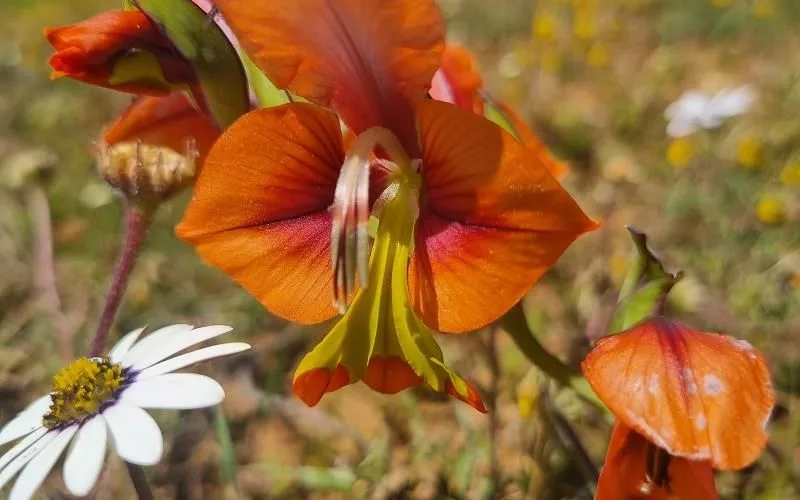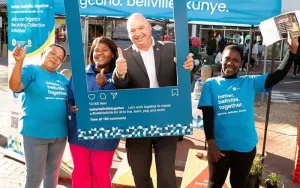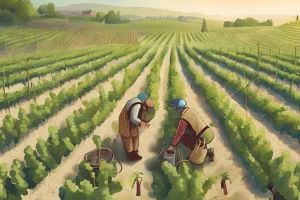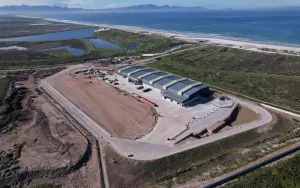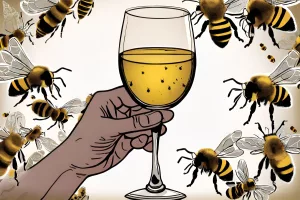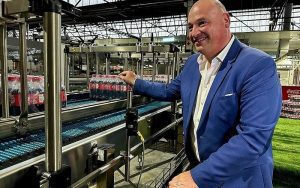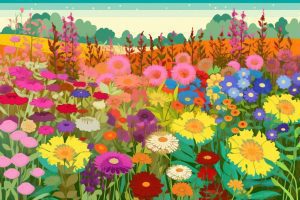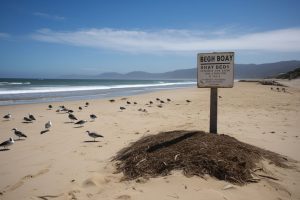Cape Town’s ‘No Mow’ initiative transforms public areas into a vibrant display of spring flowers and indigenous vegetation from August through November. This initiative fosters critical environmental processes and contributes to the larger ecological puzzle by creating resilient networks of varied habitats. It invites a diverse population of fauna, including birds, butterflies, moths, and bees, each adding their unique touch to this vivid scene. The initiative represents a deliberate shift towards greener and more sustainable methods, highlighting the city’s dedication to preserving its local biodiversity.
The better. bellville. together. project is transforming the face of Bellville, a struggling urban neighborhood in Cape Town. Led by the city, the initiative promotes sustainable practices, business investment, and community efforts, generating employment, saving money, and improving the region’s wellbeing. It embodies the principles of a circular economy, promoting waste reuse and recycling, and serves as a blueprint for other communities grappling with similar issues. It has transformed Bellville into a hotbed of prosperity and sustainability, creating jobs, fostering greener spaces, and drawing potential investments.
Vergenoegd Löw The Wine Estate in South Africa has undergone a decadelong restoration that blends its historic Cape Dutch designs with contemporary influences. The estate features two restaurants, including Geuwels, which offers a fresh twist on South African cuisine, and Clara’s Barn, which serves daily fivecourse menus based on local heritage recipes. The property’s conservation initiatives have earned it the distinction of a WWF Champion. Its ecofriendly farming practices include using Indian Runner ducks and Dexter cattle to naturally manage pests and fertilize the soil.
The City’s Urban Waste Management Directorate has unveiled its budget plan for 2024/25, which prioritizes the improvement of sanitation and waste collection services, waste reduction capacity, and compliance with safety regulations. The budget includes significant allocations for refurbishing facilities, smallscale enhancements, and capital expenditure, funding a range of innovative projects and sustainable practices. The Directorate encourages public participation and feedback on the proposed initiatives, which will shape a more ecofriendly and efficient future for the City.
Moedi Wines, a South African wine brand led by Lesego Serolong Holzapfel, gained international recognition at ProWein 2024 in Germany. The brand promotes sustainable practices, African heritage, and local communities, and donates 10% of its profits to support honey farmers and scholarships for orphans in rural areas. With a range of single varietals from the Swartland region, Moedi Wines offers highquality wine while supporting rural beekeepers and promoting biodiversity.
Cape Town, South Africa’s vibrant business landscape, is a testament to the city’s commitment to business growth and innovation. Recently, CocaCola Peninsula Beverages expanded its operations, introducing a new production line. This expansion highlights the potential for significant job creation and economic growth in the region. The investment of over R200 million demonstrates the company’s confidence in Cape Town’s thriving business environment and the mutually beneficial partnership between CocaCola Peninsula Beverages and the City.
Nestled in the charming village of Jamestown, a short 4km drive from Stellenbosch, lies an undiscovered gem perfect for celebrating Mother’s Day in style. Founded in 2020 by Wendy Attwell, Barbara and Beatrice Fassler, along with their assistants Boston and Lenny, the Jamestown Flower Farm offers a unique and unforgettable experience for families.
Astron Energy, a South African refinery company, faces criticism following a recent product spill from their Milnerton Refinery that leaked into Table Bay waterways, affecting local birds and wildlife. Environmental groups and community members are frustrated with Astron’s response to the spill, with concerns raised about the fall’s extent and the booms’ effectiveness.
Fashion has always been a form of selfexpression, but the industry has been scrutinized for its environmental impact in recent years. However, in South Africa, a growing number of fashion brands are taking proactive steps toward sustainability and ethical production. From ecofriendly fabrics to upcycling materials, these brands are leading the way toward a more sustainable future for the fashion industry.

